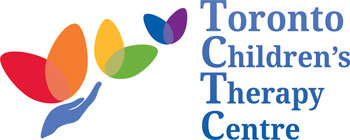Written by Vithurry Sivaloganathan, OT Reg. (Ont.)
 As an occupational therapist (OT) working in children’s mental health, I am constantly getting asked by parents why their child or teen has trouble self-regulating and what they can do to help. Self-regulation is a popular term that is popping everywhere including in schools, parenting books, and in mental health literature. Parents, teachers, and healthcare professionals are all realizing the importance of self-regulation skills in socializing, learning, and participating in day-to-day activities.
As an occupational therapist (OT) working in children’s mental health, I am constantly getting asked by parents why their child or teen has trouble self-regulating and what they can do to help. Self-regulation is a popular term that is popping everywhere including in schools, parenting books, and in mental health literature. Parents, teachers, and healthcare professionals are all realizing the importance of self-regulation skills in socializing, learning, and participating in day-to-day activities.
Many of the teachers I have worked with are reporting more and more children that seem to be stressed out and are responding with big outbursts such as meltdowns or aggression. It can be really frustrating as a parent of a child who has trouble self-regulating. As a parent, you may have tried the ‘traditional’ approaches such as rewards and/or consequences to support your child and noticed that these strategies are not working. The purpose of this post is meant to give parents a better understanding of the concept of self-regulation and tips to support children in developing self-regulation skills.
What is Self-Regulation?
Self-regulation is one’s ability to identify their own stressors and adjust their level of alertness to help them function at their best and minimize the stressors (Baumeister & Vohs, 2011, as cited in Shanker, 2013). Stressors can look very different. Loud noises, distracting visual stimuli, fatigue, hunger, strong emotions, interacting with peers, and/or meeting academic demands are all examples of potential stressors for children.
Children and teens are not expected to possess all of the skills necessary to self-regulate right away. However, during their childhood and adolescent years, they have opportunities to develop these self-regulation skills (i.e. emotional awareness, vocabulary to express emotions) and build their coping toolbox. Although every child has the capacity to develop self-regulation skills, they need trusted adults to co-regulate with them in order to learn to manage their own stress load. As Dr. Stuart Shanker points out, “It is by being regulated a child develops the ability to self-regulate” (Shanker & Barker, 2016, p.69).

Self-regulation challenges during childhood/adolescence are often the result of limited skills and/or opportunities to build emotional awareness (i.e. awareness of one’s mind and body cues to stress), recognize their own triggers, read social cues, express their emotions, and develop a repertoire of positive coping strategies.
Signs of Self-Regulation Challenges in Children
• Impulsivity
• Intense emotional response (both positive and negative)
• Limited frustration tolerance
• Easily distracted
• Difficulty listening and limited attention
Strategies to support your child develop self-regulation skills:
1. Reframe their behaviours Rather than assuming that your child is acting out, it is helpful to ask yourself what are they feeling stressed about and why?
2. Model positive coping strategies Children are more likely to pick up behaviours that are modelled to them than those that they are told. As the saying goes, “Monkey see, monkey do!”
3. Validate your child’s feelings If your child is constantly getting in trouble for their ‘bad behaviours’, then they may also feel misunderstood. It is important for parents to try and understand and validate their child’s feelings in moments of stress, even if as a parent you do not agree with your child’s behaviours.
4. Normalize the experience of having big feelings As a parent, if you are having a bad day or feeling nervous, it is important to share that experience with your child in order to normalize these feelings. We all experience ‘big feelings’ and it is important for children to know that their parents feel them too.
5. Make time for frequent check-ins Make it a priority to check-in with your children about how they are feeling and the challenges they are experiencing.
How our clinic can help children develop self-regulation skills:
- Play with Purpose group: An 8-week group that includes children’s sessions and parent workshops to help foster self-regulation skills
- Therapy sessions with an occupational therapist (OT) to provide individualized support to a child and their family to develop self-regulation skills
- Attend a parent workshop on self-regulation and co-regulation
About the Author
Vithurry Sivaloganathan is a registered OT with experience providing individual and groups therapy services to children in the areas of self-regulation, sensory processing, social skills, and fine and gross motor skills. Along with working at the Toronto Children’s Therapy Centre, she also works at a children’s mental health centre. Her role at the mental health centre includes running group therapy, facilitating parent workshops, and providing consultations for families experiencing challenges in areas including self-regulation and sensory processing. Vithurry has also consulted for organizations including a TDSB Section 23 School and an EarlyON Child and Family centre. Vithurry brings her unique experience in mental health, and applies a play-based and family-centered approach to support children and their families reach their goals.
Citations
- Center on the Developing Child (2012). Executive Function (InBrief). Retrieved from www.developingchild.harvard.edu.
- Shanker, S. (2013). Calm, Alert and Learning: Classroom Strategies for Self-Regulation. Toronto: Pearson Canada.
- Shanker, S., Barker, T. (2016). Self-Reg: How To Help Your Child (And You) Break The Stress Cycle and Successfully Engage With Life. Canada: Penguin Random House
